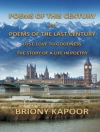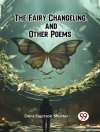In William Shakespeare’s ‘Romeo and Juliet, ‘ the playwright explores themes of love, family, and the consequences of feuding. Written in blank verse, the play encompasses both tragedy and romance. Set in 16th century Verona, the narrative follows the young lovers Romeo and Juliet from rival families as they defy societal norms in pursuit of their relationship. The play’s poetic language and dramatic tension captivate audiences, making it one of Shakespeare’s most enduring works. ‘Romeo and Juliet’ is considered a quintessential piece of English literature, showcasing the author’s mastery of language and storytelling. The play’s enduring popularity is a testament to Shakespeare’s ability to resonate with audiences across generations. William Shakespeare, known as the greatest writer in the English language, drew inspiration from various sources to create this timeless tale of love and tragedy. His keen observations of human nature and society are evident throughout the play, making it a must-read for those interested in classic literature and the complexities of the human experience.
Over de auteur
William Shakespeare, baptized on April 26, 1564, in Stratford-upon-Avon, is often hailed as the greatest playwright in the English language. His works, which delve into the depths of human emotion, psychology, and society, have transcended time and linguistic boundaries. Shakespeare produced a vast array of plays categorized into comedies, tragedies, histories, and romances. His mastery over the iambic pentameter and use of blank verse alongside rich, evocative language has become a cornerstone for classical literature. ‘Romeo and Juliet, ‘ a tragedy written early in his career, showcases his genius in weaving complex characters, exploring themes of love, fate, and the brutality of societal constraints. The play remains a staple in literary studies, often celebrated for its poetic eloquence and the tragic beauty of its protagonists’ ill-fated love. Throughout his career, Shakespeare penned 39 plays and 154 sonnets, leaving an indelible imprint on the arts that continues to influence writers and audiences well into the modern era. His works are studied for their literary merit and have been adapted countless times for stage, film, and educational purposes. Shakespeare’s enduring legacy cements him as not only a playwright but a prophet of the human condition, with insights that continue to echo through the centuries.












